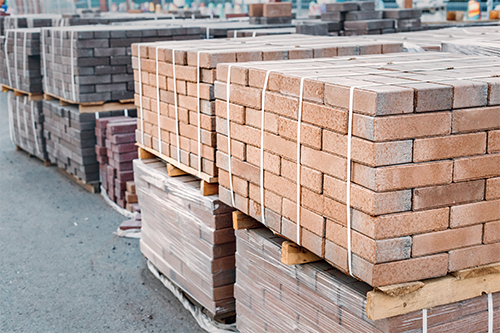
Waste not, want not
The construction sector is responsible for 11 percent of carbon emissions around the world. To address this, the UK government has introduced a ten-point plan to reduce carbon emissions within the industry. This includes releasing whole-life carbon assessments to the general public and updating design standards.
There are many more things the construction industry can do to reduce its carbon footprint, including reusing and recycling building materials. As well as being environmentally conscious, research shows that this can reduce costs and improve a company’s credibility. So, think outside of the box and focus on sustainable waste management.
This article will explore some of the building materials you can reuse and recycle. Whether you’re managing a sustainable project or building your own home, these materials will leave you with a clear conscience and the world with a cleaner atmosphere.
Plasterboard
The war on plastics is a continuous effort. Over 380 million tonnes of plastic is thrown away every year, and only nine percent is recycled adequately. To battle this, the construction industry can recycle and reuse its plastic waste. This includes plasterboard (or drywall), which is found in walls and floors.
As walls are an integral part of any building, the construction industry produces a surplus of plasterboard. One of the best ways to dispose of this is single stream recycling. This allows businesses to recycle large volumes of waste with ease and can be applied to some of the materials below.
Metal
Metal is a durable and strong building material. If you want to build with the environment in mind, steel is a great metal to work with. In fact, research shows that the steel we use is made of 40 percent recycled scrap metal. This means you’re reducing carbon emissions before construction has begun.
It is also simple to recycle or reuse steel. In construction, metal bars are placed within walls to provide strength and stability. These are called rebars. Whether you’re building from scratch or renovating a space, you may have a surplus of this material. However, as the Steel Recycling Institute claims around 65 percent of these bars are recycled, this shouldn’t be an issue.
Brick
In the UK, brick is the most common material used to build houses. If you walk down any street in the nation, you’ll see bricks upon bricks forming the environment around you. So, it’s important that we’re able to make this building material as sustainable as possible. Luckily, reclaimed bricks can be used in construction.
One of the best times to use recycled bricks is during a renovation, from reviving a century-old public building to replacing a wall in a barn conversion. They may be slightly less apt for insulation, but they’ll add a sense of vintage style to any renovation project. So you can save the environment one reclaimed brick at a time.
Wooden pallets
Construction is no small task. Building a simple structure requires a large number of different materials. These are often stacked and stored on wooden pallets. In the UK, these pallets account for ten per cent of waste in the construction industry. To reduce this waste, companies can attempt to reuse these or recycle them for scrap wood.
Overall, the construction industry has a long way to go before it is carbon neutral. There are governmental plans in motion to reduce the environmental impact of the sector, but it always helps to start small and focus on the little things. So, using materials that can be recycled and reused is a great way to be environmentally conscious. By following these simple steps, builders and engineers shine hope on a greener future. How will you help build a carbon-conscious society?
For a list of the sources used in this article, please contact the editor.
Tony Munro is Marketing Director at Reconomy. Reconomy is the environmental sector’s leading outsourced waste and resource service provider. With 25 years’ experience, Reconomy has a nationwide network of over 1000 supply chain partners that are focused on minimising waste and promoting a circular economy. Reconomy is unique is in its ability to provide consultancy-led sustainability and circular economy solutions.